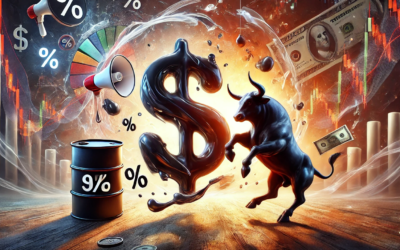AI and Trading: What It Can and Can’t Do
We first had “them”, then we had “HFTs” and now it’s “AI” – the most recent in a long history of developments in technology that threaten to destroy your ability to trade (if you are a pessimist) OR make you 1000% a day with a $100 plug-in (if you are an optimist).
The main focus of this article is to help you understand what AI is and to avoid falling into any traps – such as blaming it for your losses or buying products that claim to be AI.
Many platforms allow you to write code to automate trading. You write the rules. The platform executes them. You can backtest. You can change the parameters (e.g. moving average 50 vs 200). You bring the rules, the platform executes them.
This is not AI. The technology does not support development of AI. Although it could be argued that you could write a plug-in to connect to AI.
What’s the difference?
Differs primarily because it does something called “inference”, a fancy name for “figuring stuff out on its own”.
There have been 3 approaches to AI, evolving over time:
Oldest: Symbolic AI
What you’d give it: Rules such as “If the 50-day moving average crosses above the 200-day, it’s bullish.”, “If volume is 10% above average, confirm the trend.”, “If the market’s down 1% today, don’t buy.”.
What it’d figure out: “The 50-day crossed the 200-day (bullish), volume’s up 10% (trend confirmed), but the market’s down 1%—so hold off”. So it does step-by-step reasoning with the logic you gave it.
Later: Machine Learning (and by no means is this outdated)
What you’d give it: Data to look at “prices, volumes and results”. A goal “Maximise profits on technology stocks”. Basically, you tell it where to look and what outcome you want.
What it’d figure out: “A 1% dip with 20% volume spike means buy—70% success rate”. It would look at the specific data you gave it for patterns that impact the outcome.
Newest: Deep Learning
What you’d give it: Everything you have. All of the Machine learning stuff plus social media posts like tweets, facebook posts, website updates, news releases, news audio, reddit chatter etc. Also – a goal – “Predict S&P 500 moves in 30 minutes.”
What it’d figure out. Weird links like: “‘Rate hike’ tweets at 10 a.m. plus options surge = 0.5% S&P dip.” It finds patterns from chaos, no hand-holding.
Now – might ask “Well – wouldn’t they all figure out the same thing and take over?” The short answer is no.
The results will vary based on the data you give it (e.g. candles vs order flow), the goals you set it, and the way the architecture is built. The best way to think about it, if you ask Grok for a cat in a hat – you’ll get this:

If you ask GPT – you’ll get this:

Stable Diffusion, Flux.1, Imagen 3, Midjourney etc. will all give you different results. And the more data you put in – the more expensive it is. This means there is space for you to develop your own AI-based systems should you choose.
It also means there will be many AIs trading in many different ways which is good for us traders. In fact, much healthier for the markets than HFT where a lot of companies are chasing the same penny, the by-product of which is effectively an “HFT Tax” on stock trading – hence the rise of dark pools.
So where do ChatGPT and Grok fit into this? Can you use them for trading?
Well, sort of – but don’t expect great results. These are “LLMs” a type of Deep Learning AI training on lots of text to predict and generate language. It could discuss, summarize or even write trading analysis based on reports and widely available information.
LLMs are trained on data – Grok is trained on the whole internet and constantly updated. GPT is trained on the whole internet up to 24th June, 2024. You can use them to research approaches and ideas but they would not perform anywhere near as well as a “trading trained AI”.
The best way to explain it would be to answer the question: “Could an LLM Learn Chess?”
Yes and No!
- An LLM can learn the rules of chess and basic strategies through its text training
- It can represent and discuss chess positions in text form
- It can make reasonable moves based on its training
But it would be extremely inefficient compared to specialized chess engines because:
- It has to convert board positions to text and back
- It isn’t optimized for the specific logic of chess
- It doesn’t use game tree search algorithms like minimax
AlphaZero (a dedicated deep learning system for games) would destroy an LLM at chess as it’s specifically designed for that task. LLMs are powerful general-purpose text interfaces, and great at pulling and consolidating research – but for specific prediction tasks on numerical data, specialized models are simply better.
To conclude. AI isn’t going to take away your trading. It’s been used in trading since the 80s – in some form – it just wasn’t AI as we know it today. Also – now you are a bit wiser – you can ask the salesman of that $100 AI plug-in – “is it deep learning or machine learning?”, “what sort of data did you train it on?”, “what does in infer?”, “what was it’s goal?”, “what AI framework did you use?” – none of that would be proprietary.
If this article is popular, let us know and maybe we’ll take a deeper dive into the costs and approach to using Machine Learning and Deep Learning in your trading.
AI isn’t magic, it’s just another tool.
Simplify Your Trading
Take a look into the decision making process of professional traders with this video training series that helps you make smarter trading decisions.




0 Comments